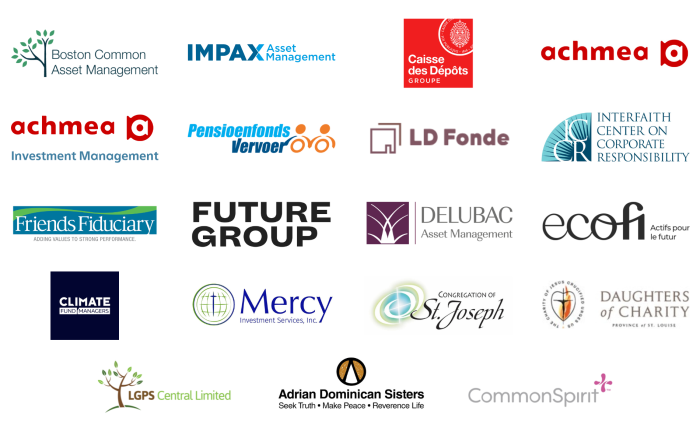Investor statement on violence and harassment in supply chains
37 financial institutions representing over USD one trillion call on companies and governments to urgently take action to address violence and harassment in global supply chains
Violence and harassment at work is a pervasive global issue. The International Labour Organization’s global survey estimates that at least one in five people have experienced violence and harassment at work.
The International Labour Organisation (ILO) Convention on Violence and Harassment (C190) was designed to address this issue and entered into force in 2019. It includes, for the first time in international law, specific recognition of the right of everyone to a world of work free from violence and harassment, and sets out the obligation to respect, promote and realise this right.
This groundbreaking convention sets a clear, common framework to address violence and harassment at work. The convention turns five in 2024, and both governments and companies still have much to do to translate C190’s goals into a reality.
To date, only 45 countries have ratified it. Many others, including most of the countries that host the largest numbers of people working in global apparel and agricultural supply chains, as well as some of the world’s most influential corporations, have yet to do so. And while many companies have policies and commitments about violence and harassment, most lag behind when it comes to implementing these in practice, as evidenced by the World Benchmarking Alliance (WBA)’s recent Gender Benchmark.
The Gender Benchmark assessed 112 of the world’s most influential companies on their policies, processes and practices to achieve gender equality. These companies came from two high risk sectors, the apparel and food and agriculture sectors. Results show that while 86% of companies have a publicly available policy regarding violence and harassment at work, and 67% require suppliers to have such a policy, implementation and outcome-oriented monitoring and reporting are sorely lacking.
For instance, only 5% of the companies disclose that they identified violence and harassment as a salient risk in their human rights due diligence process. Furthermore, just 10% require suppliers to train their managers and workers, and only 20% require suppliers to have a remediation process to address violence and harassment grievances.
These findings highlight major gaps in the implementation of ILO C190 and the transformation of workplace policies, practices and culture. The Gender Benchmark results specifically emphasise the need for companies to secure top-level commitment to address violence and harassment in their supply chains, identify and assess related risks and impacts, and act on those findings.
Failing to address this risk has significant costs for companies, countries, communities and individuals. Violence and harassment at work impacts productivity, turnover, absenteeism, and overall morale; and estimates suggest it can lead to losses between 1 and 3.5% of national gross domestic product. More importantly, violence and harassment incidents have severe physical and psychological costs for the individuals that experience or witness it.
As investors representing over USD one trillion in assets under management, we recognise the critical role of the private sector in the effective implementation of ILO C190. We call on all companies we invest in that are assessed under WBA’s Gender Benchmark to urgently address violence and harassment in their own operations and their supply chains. We will use the Gender Benchmark to track their progress in identifying risks and impacts related to violence and harassment and the actions taken to remediate them.
We also urge governments to ratify C190 to prevent and end all forms of violence and harassment at work. Universal ratification will create safer and more equitable workplaces, benefiting society as a whole.
Now is the time for companies and governments to step up. All stakeholders, including financial institutions, must hold companies accountable for their actions – rewarding those that are taking positive steps and pressuring laggards to take meaningful action.
Signatories

Storebrand Asset Management
Church Commissioners for England
MAIF
Greenbank (part of Rathbones Group)
Maryknoll Sisters
School Sisters of Notre Dame Collective Investment Fund
Figure 8 Investment Strategies
ESG-AM
DERICK PATRIMOINE
Delubac Asset Management
ROCE Capital
Ircantec
Dorval Asset Management
LFR – La Financière Responsable
Scottish Widows
Riverwater Partners
JLens
Madison Krieger
This investor statement is linked to WBA’s Collective Impact Coalition on Violence and Harassment, a multi-stakeholder call to action for companies to address violence and harassment in their supply chains.
If you wish to sign the statement, please contact:
Talya Swissa: t.swissa@worldbenchmarkingalliance.org
Sofia del Valle: s.delvalle@worldbenchmarkingalliance.org